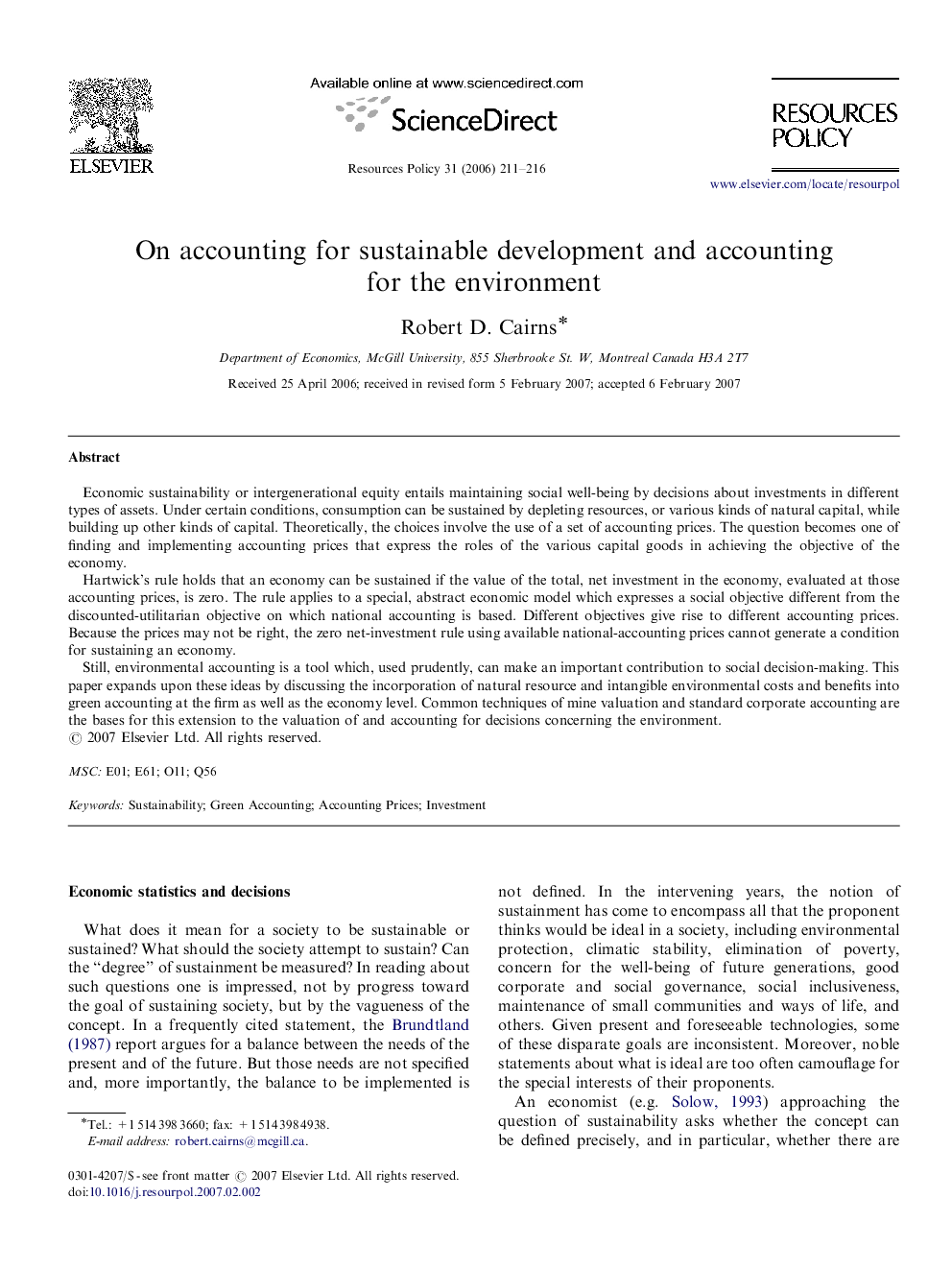| Article ID | Journal | Published Year | Pages | File Type |
|---|---|---|---|---|
| 986214 | Resources Policy | 2006 | 6 Pages |
Economic sustainability or intergenerational equity entails maintaining social well-being by decisions about investments in different types of assets. Under certain conditions, consumption can be sustained by depleting resources, or various kinds of natural capital, while building up other kinds of capital. Theoretically, the choices involve the use of a set of accounting prices. The question becomes one of finding and implementing accounting prices that express the roles of the various capital goods in achieving the objective of the economy.Hartwick's rule holds that an economy can be sustained if the value of the total, net investment in the economy, evaluated at those accounting prices, is zero. The rule applies to a special, abstract economic model which expresses a social objective different from the discounted-utilitarian objective on which national accounting is based. Different objectives give rise to different accounting prices. Because the prices may not be right, the zero net-investment rule using available national-accounting prices cannot generate a condition for sustaining an economy.Still, environmental accounting is a tool which, used prudently, can make an important contribution to social decision-making. This paper expands upon these ideas by discussing the incorporation of natural resource and intangible environmental costs and benefits into green accounting at the firm as well as the economy level. Common techniques of mine valuation and standard corporate accounting are the bases for this extension to the valuation of and accounting for decisions concerning the environment.
